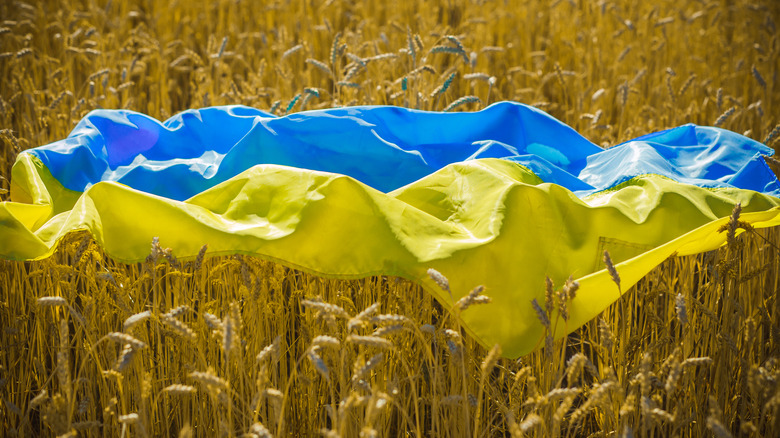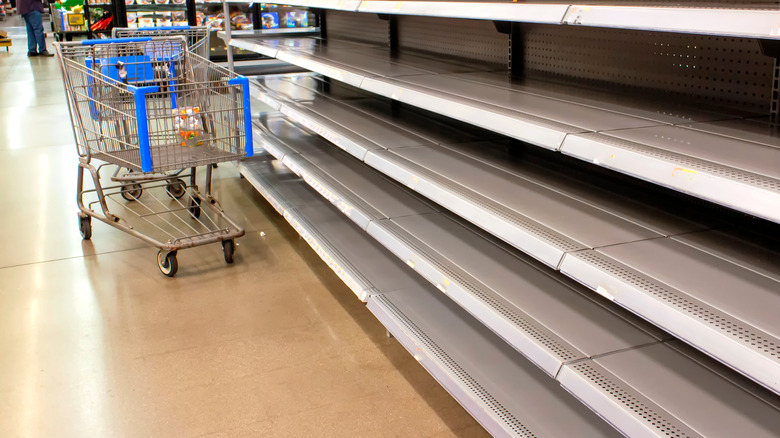World Bank Made A Dire Prediction About Ongoing Food Shortages
Russia's war on Ukraine has cost thousands of lives and has led over 5 million Ukrainians to flee their home country as refugees, according to NPR. As the war goes on though, the crisis may soon spread to the rest of the world, not militarily, but economically. The World Bank warned this week that soaring inflation, driven largely by the crisis in eastern Europe, could raise food prices around the world by 37%, which could destroy the economies of developing nations and crush low-income and middle class families around the world (per BBC).
The United Nations reported that food prices hit a record-breaking high for the second month in a row in March driven largely by the war in Ukraine and the resulting sanctions on Russia by the world's largest economies. "It's affecting food of all different kinds oils, grains, and then it gets into other crops, corn crops, because they go up when wheat goes up," World Bank President David Malpass told BBC. Russia and Ukraine account for about 30% of the world's wheat supply and contribute heavily to the maize market. Ukraine is also the world's leading producer of sunflower oil, shortages of which have driven up the prices of other vegetable oils.
The problem is further exacerbated by increases in transportation costs driven by skyrocketing oil prices and rising fertilizer costs as Russia is an important oil producer and both Russia and its ally Belarus together supply about 20% of the world's fertilizer (via CNBC).
Feeling the impact
Some countries are already being directly affected by the crisis in Ukraine, particularly in the Middle East and northern Africa. NPR reports that 38 countries are experiencing "acute food insecurity," a problem which will likely worsen as the UN estimates that at least 20% of the crops planted in Ukraine this winter will not be able to be harvested.
Meanwhile, while Politifact notes the likelihood of physical food shortages in the U.S. is very low, shortages around the world, climate change, the lingering effects of the COVID-19 pandemic, and the toll of economic sanctions on products like oil and seafood are likely to continue driving prices up. Early in April, ConAgra announced increased production prices would lead to both a loss of profits for stockholders and an increase in prices next year, while The Guardian reported that Nestle is expected to increase its prices again in the coming year, after already raising them over 5% in the past three months.
"It's a human catastrophe, meaning nutrition goes down. But then it also becomes a political challenge for governments who can't do anything about it, they didn't cause it and they see the prices going up," said Malpass, who also noted that as prices hit the poor, they have less money to spend on anything else (via BBC).
While solutions are unclear, CNBC reports Malpass is meeting this week with representatives from the International Monetary Fund (IMF) and the G20 to discuss ways to avert an international crisis.

